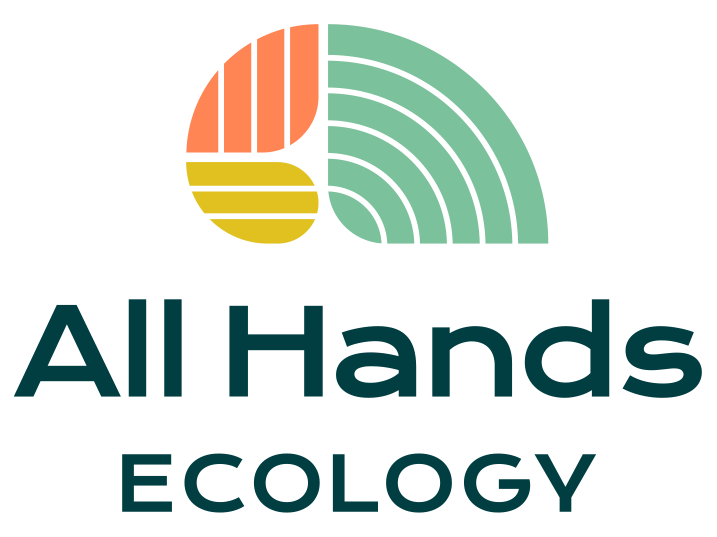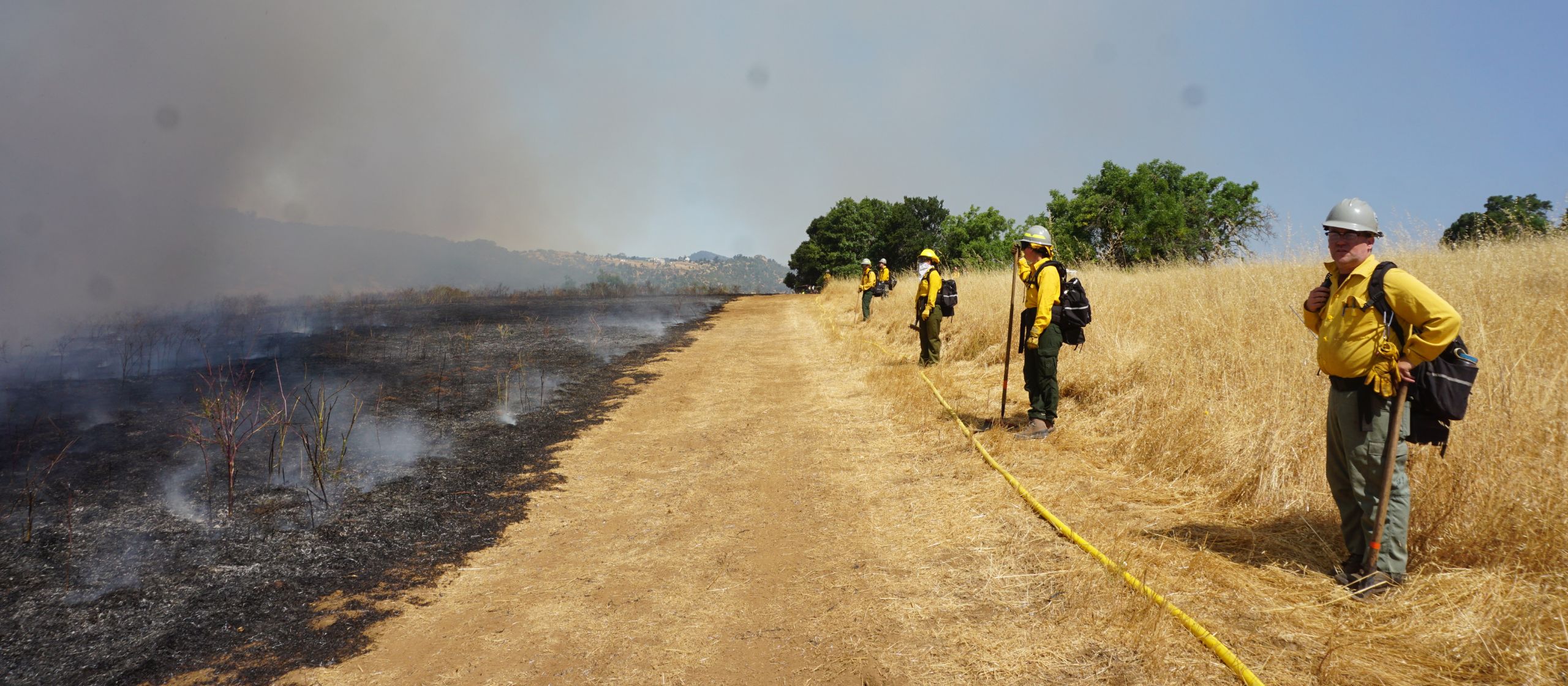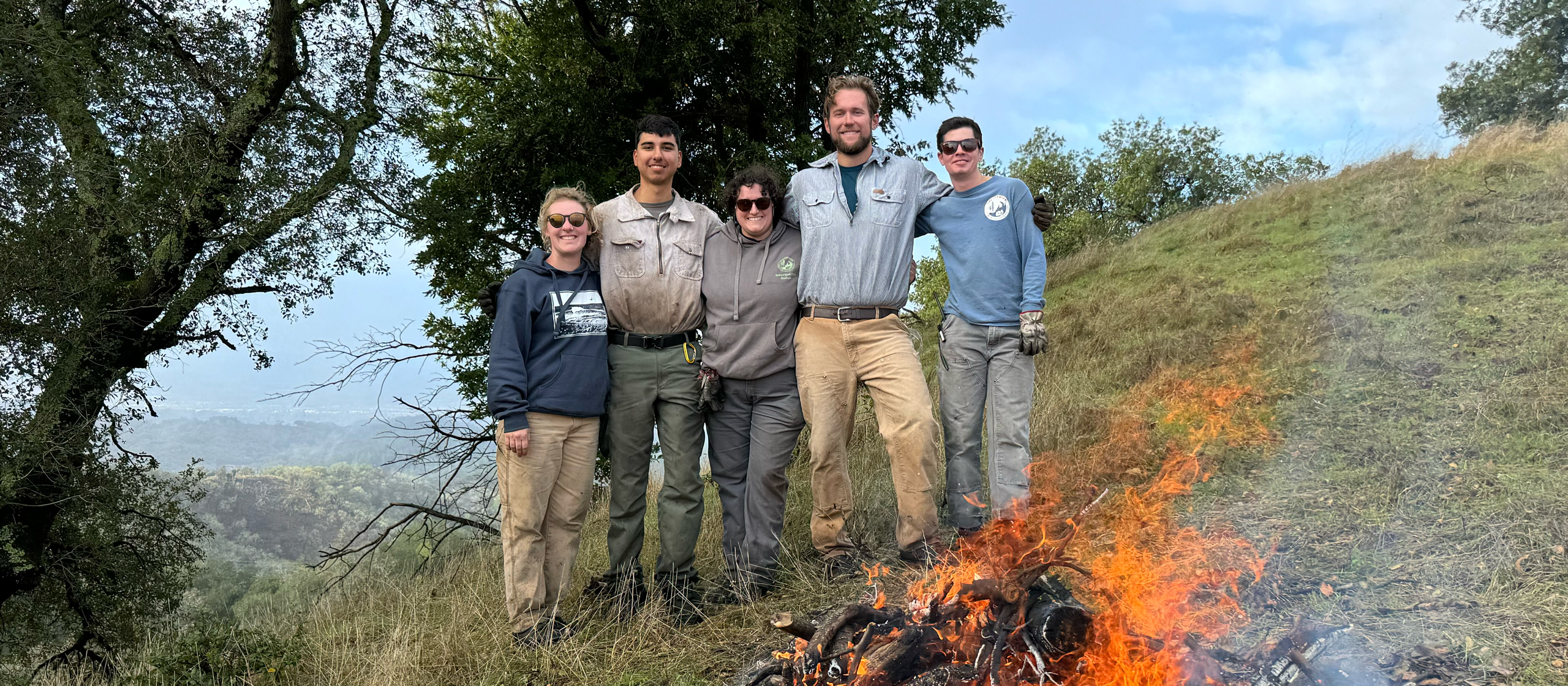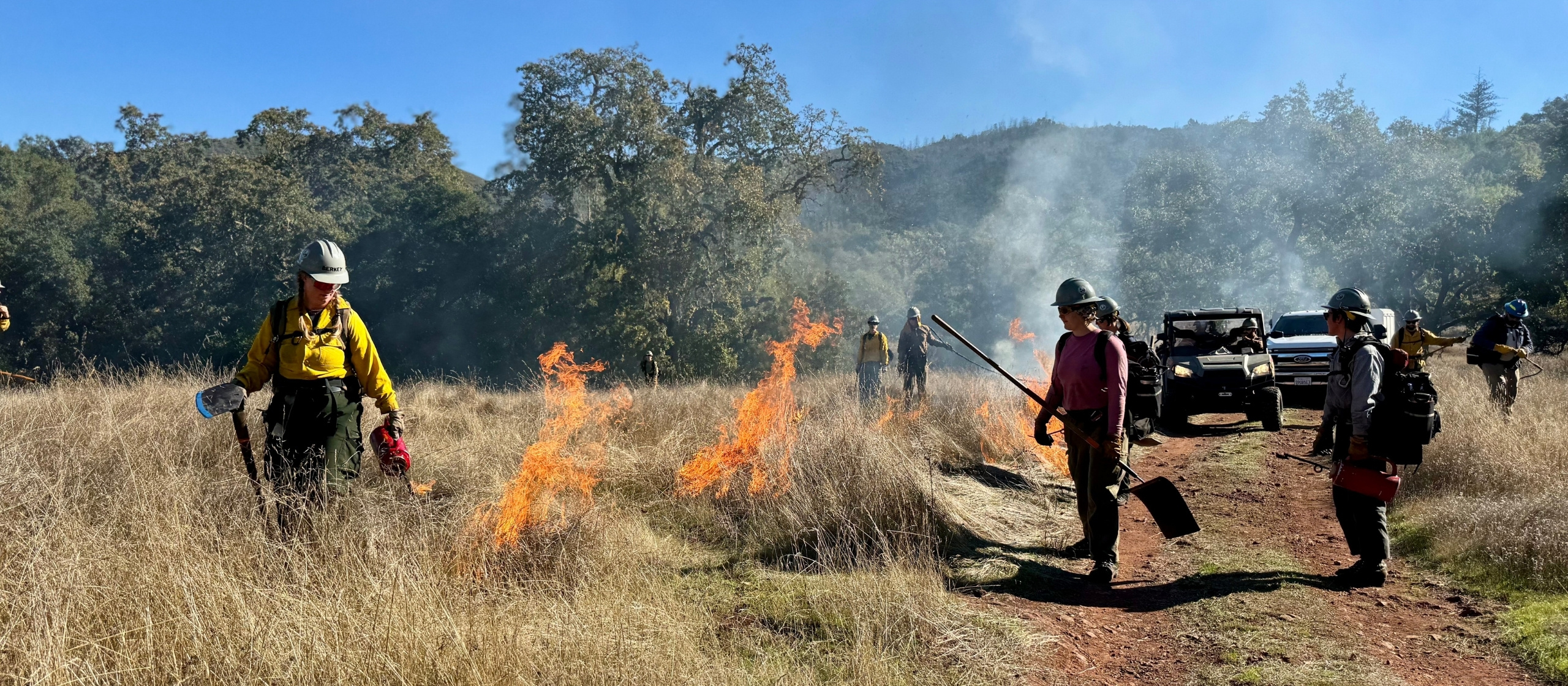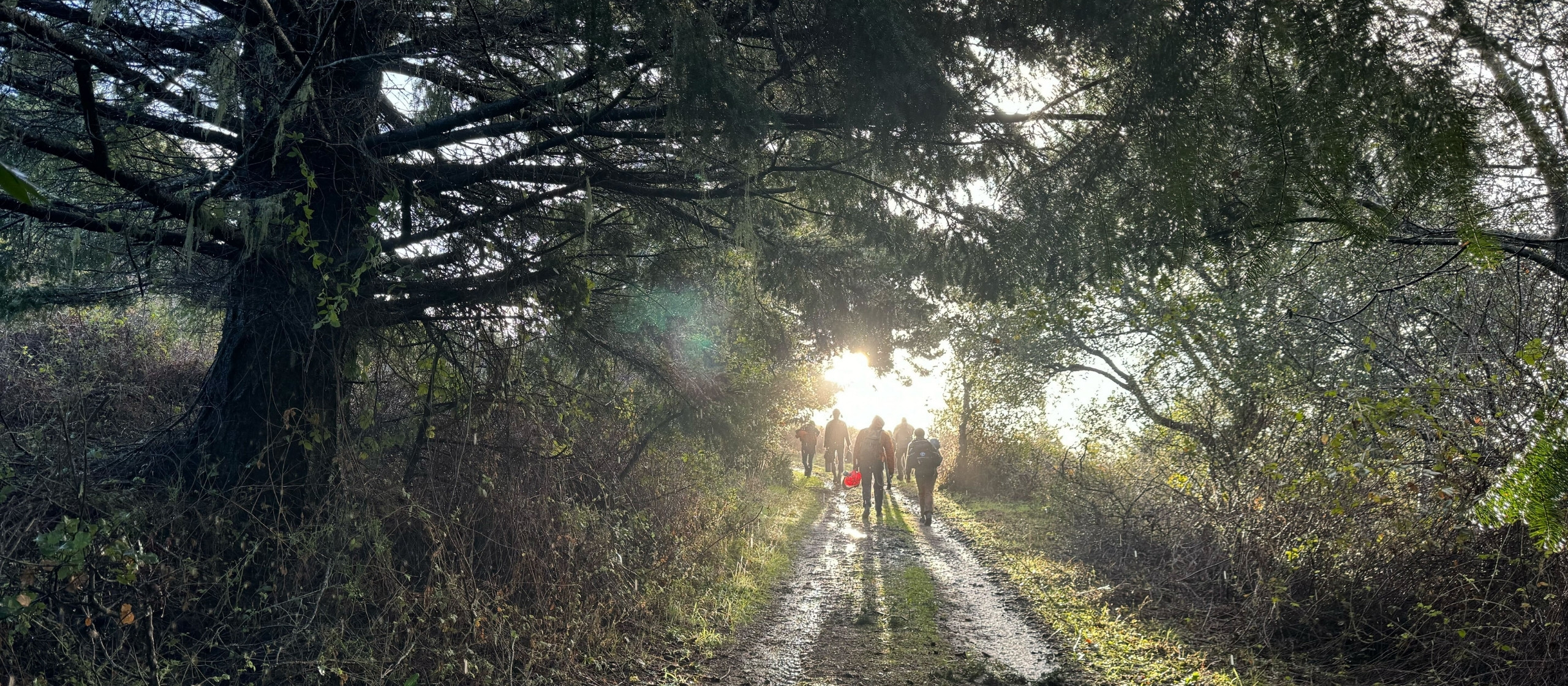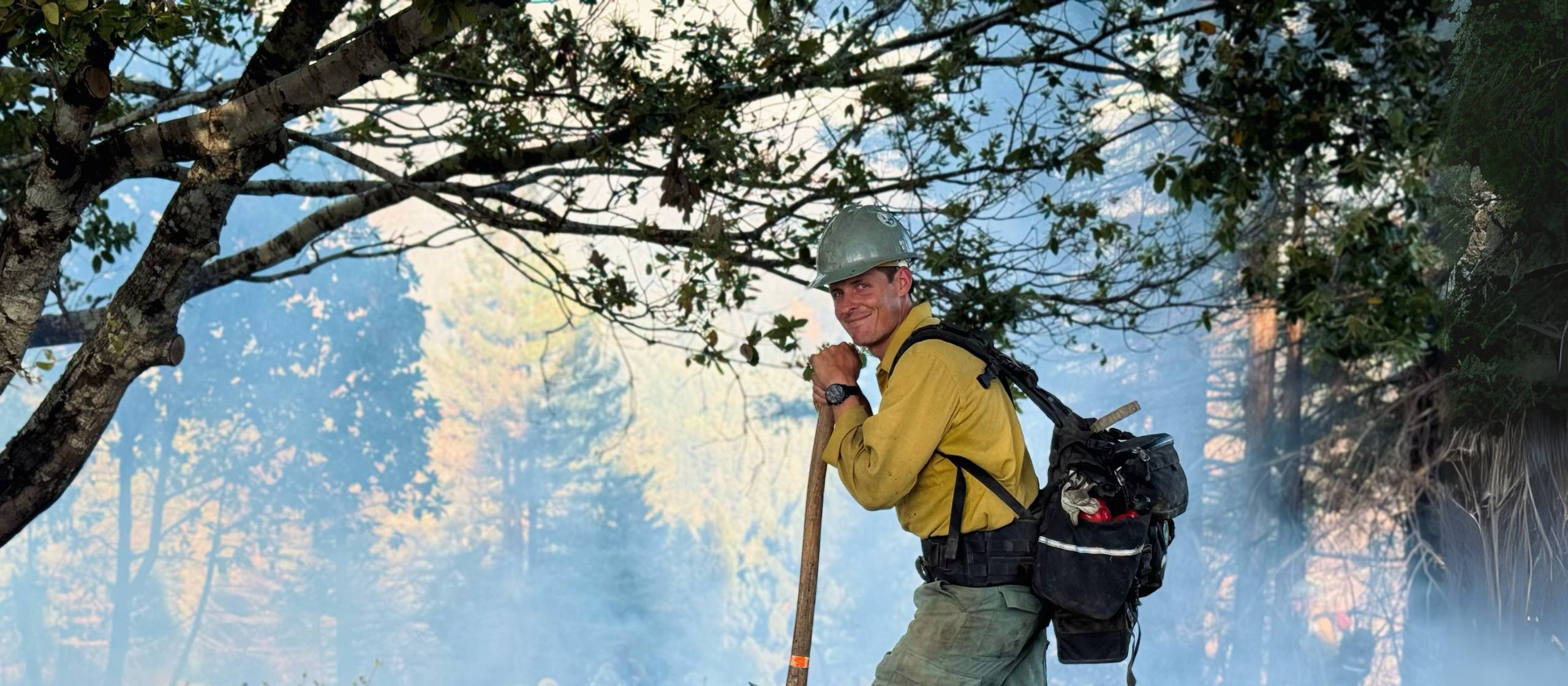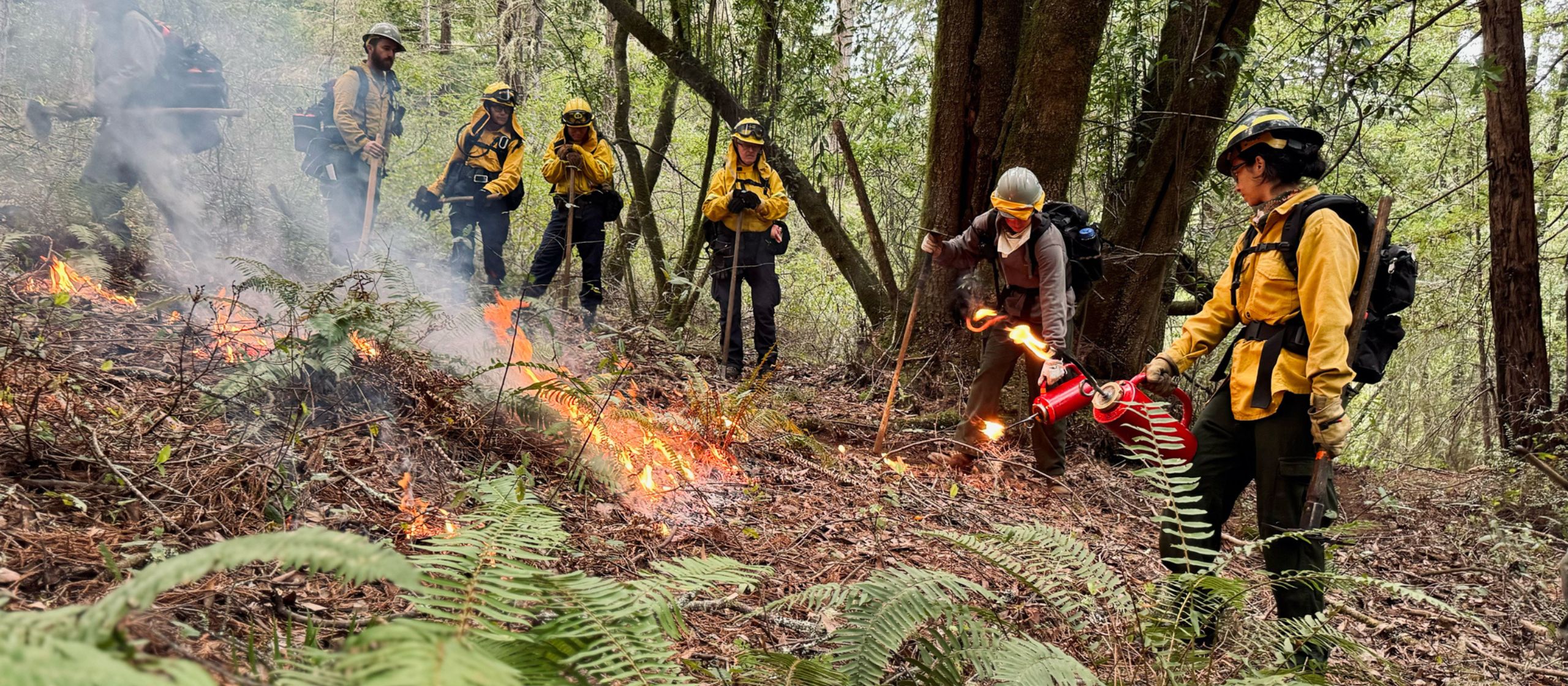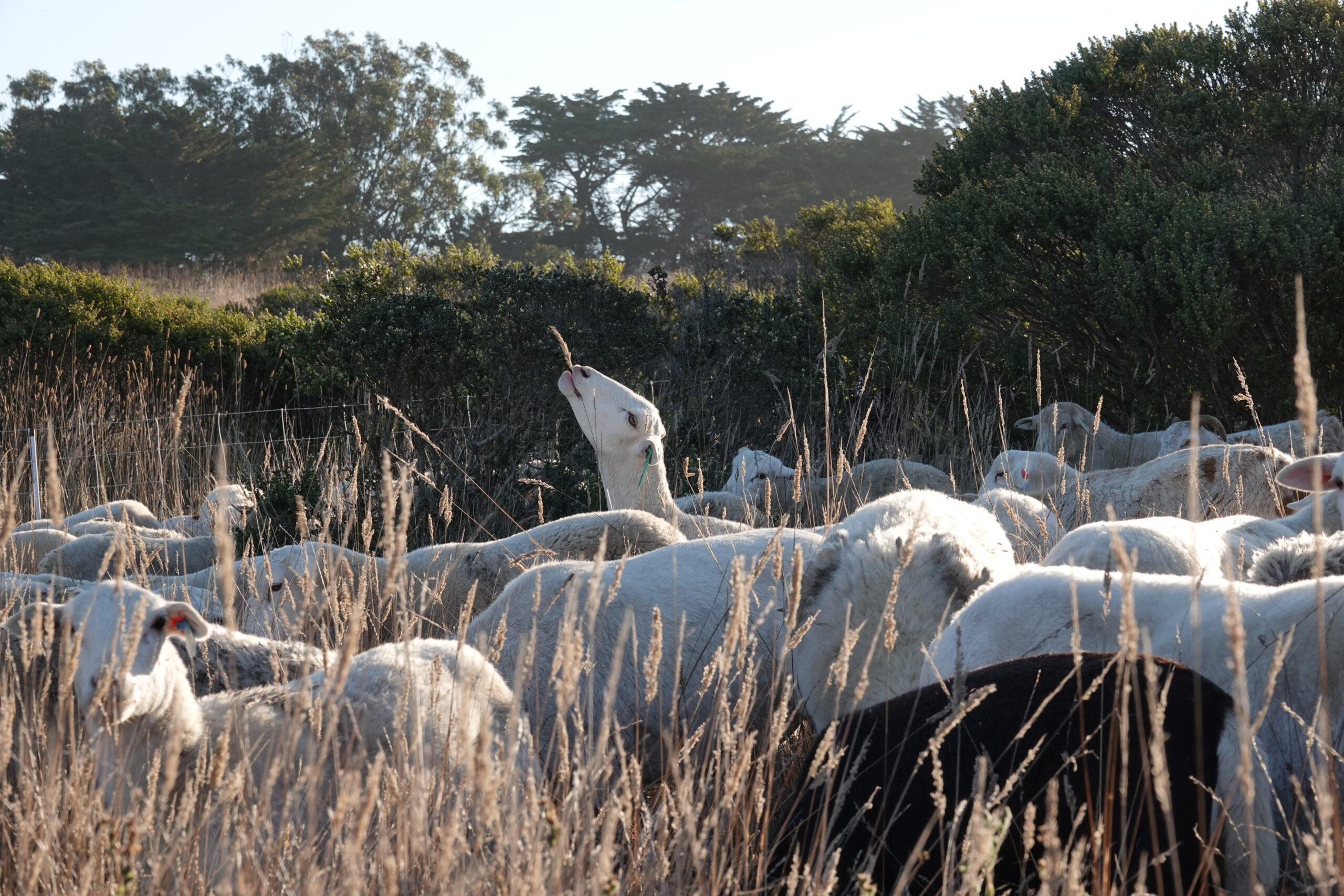|
Getting your Trinity Audio player ready...
|
Words of hope
“Here’s hoping something cool is down the road,” wrote Tony Nelson as a sign-off in an email from January 2018 — an encouraging sentiment during a moment of tragedy for Sonoma Valley residents.
Just three months earlier in October 2017, the Nuns Fire burned 56,566 acres, destroyed 1,355 structures, and caused three fatalities, leaving valley residents shaken. Nelson’s email was a call to gather land managers from agencies and organizations to meet the moment with collective care for Sonoma Valley lands. Nelson, who was the Sonoma Valley program manager for Sonoma Land Trust (SLT), sent the email to All Hands Ecology (formerly Audubon Canyon Ranch), California State Parks, and Sonoma County Regional Parks.
What emerged from this first meeting became known as the Sonoma Valley Wildlands Collaborative — with Sonoma County Ag + Open Space and Mitsui Ranch Preserve also added to the group. Today, these organizations are working together to steward 20,000 acres stretching across the Highway 12 corridor — supporting thriving ecosystems and strengthening wildfire resilience throughout Sonoma Valley.
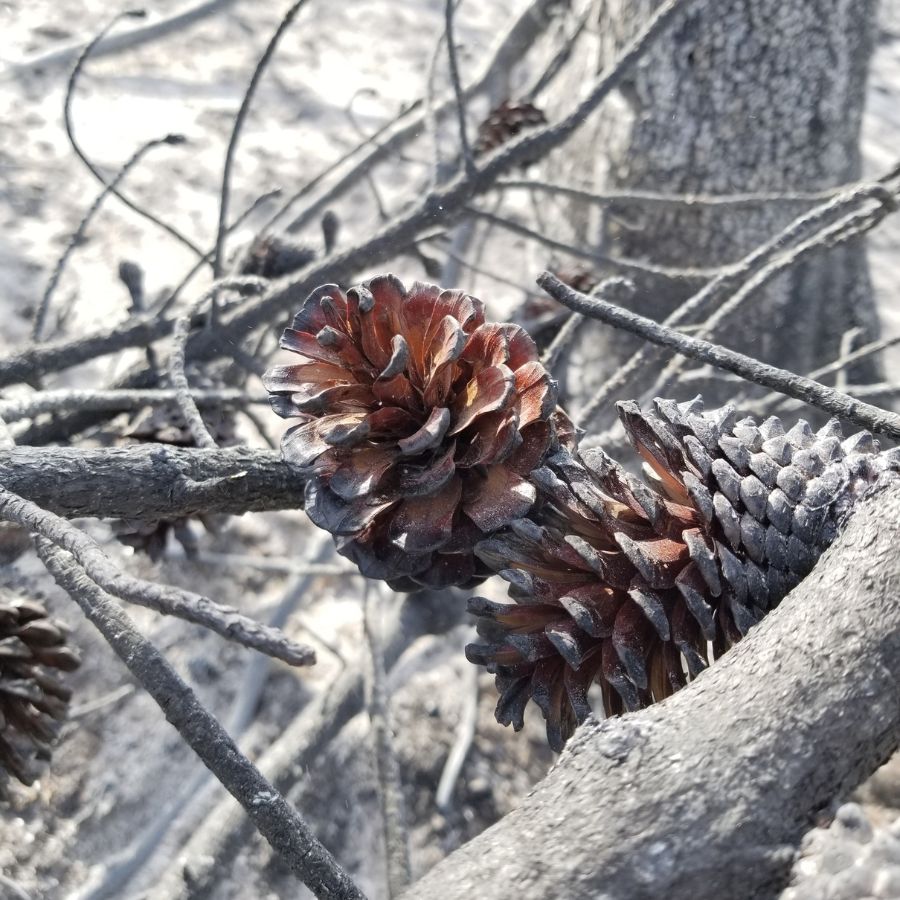
Visionary or necessary?
Before the Nuns Fire, the idea for the Collaborative had already taken root. Prescribed fire was recognized as a valuable tool for enhancing habitat, biodiversity, and forest health, as well as for safeguarding human communities.
Jeanne Wirka, stewardship director for All Hands Ecology at the time, recalls conversations with Tony Nelson at SLT’s neighboring Glen Oaks Ranch Preserve and with Jennifer Potts, Bouverie Preserve’s resource ecologist, about the need for prescribed fire for ecosystem health.
“There hadn’t been a wildfire in the area since 1964, and there was a lot of fuel buildup,” recalls Wirka, who is now the community stewardship manager for LandPaths. “I thought that either it was going to burn in a wildfire, or we should do something about it. The idea that we needed prescribed fire was based on our own understanding of the ecology of the region.”
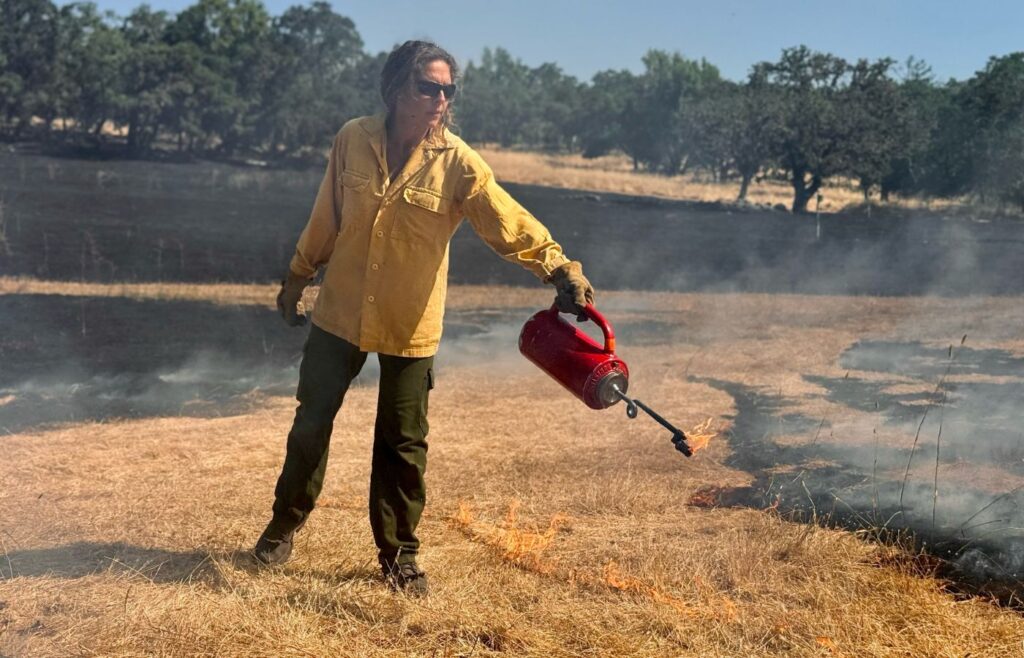
Across boundaries
As the idea for the Collaborative began to take shape, Nelson, Wirka, and Potts recognized that joining forces with other Sonoma Valley land partners to use prescribed fire made sense on many levels.
From an ecological standpoint, the line dividing Glen Oaks Ranch Preserve from neighboring Bouverie Preserve is just that — a line on a map. The topography and habitat needs are the same on both sides.
Joe Plaugher, coordinator of the Collaborative and prescribed fire manager for Sonoma Land Trust, puts it simply: “When we burn together, we don’t stop at the fence line. We do what makes sense for habitat — which is more efficient for management.”
Collaboration was also a strategy for wildfire resilience — a way to buffer Sonoma Valley communities from future burns.
“The lands the Collaborative partners manage are strategic places to do prescribed fire and fuel reduction work,” Potts explains. “With property holdings on the east side of the valley, if we can do strategic fuel reduction in these places, we can potentially slow fire moving from the northeast into the valley bottom.”
Working together opened doors to funding as well.
“We thought that if we applied for funding as a group, we were much more likely to get it than if we each applied separately,” Wirka remembers.
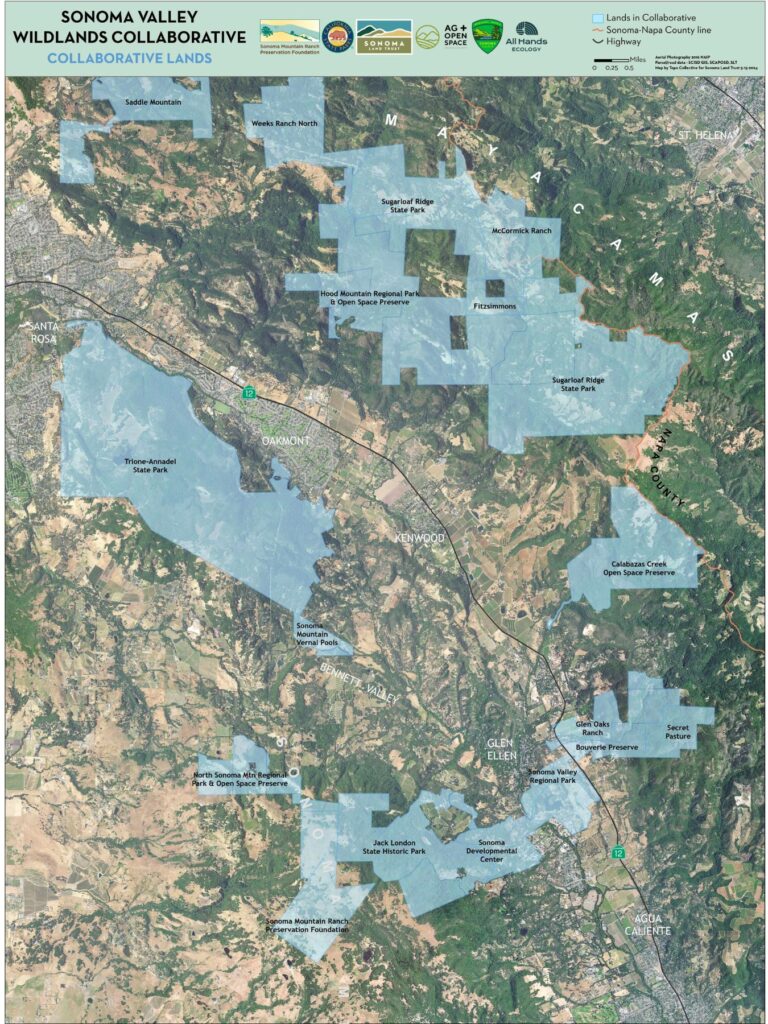
The Collaborative is born
The idea soon became a reality in the aftermath of the Nuns Fire, when grants for wildfire resiliency work became available. The Collaborative received a CAL FIRE grant in 2019, which the partners used for controlled burns, targeted thinning and reduction of ladder fuels, installation of shaded fuel breaks, and clearing vegetation along roadways. At Bouverie Preserve, this grant was used on 90 acres of mixed evergreen forest.
This was only the beginning of support for the Collaborative. To date the Collaborative has received over $3 million in grants and funding from CAL FIRE, National Fish and Wildlife Foundation, the California Governor’s Office of Emergency Services, California Department of Parks and Recreation’s Office of Grants and Local Services, Sonoma County Vintner’s Foundation, and private foundations and donors. This support, shared among the partners, has been instrumental in wildfire clean-up, fuels reduction, purchasing equipment to support future prescribed burns, prescribed burn workforce training (TREX), and increasing ecosystem health and resilience to wildfire.
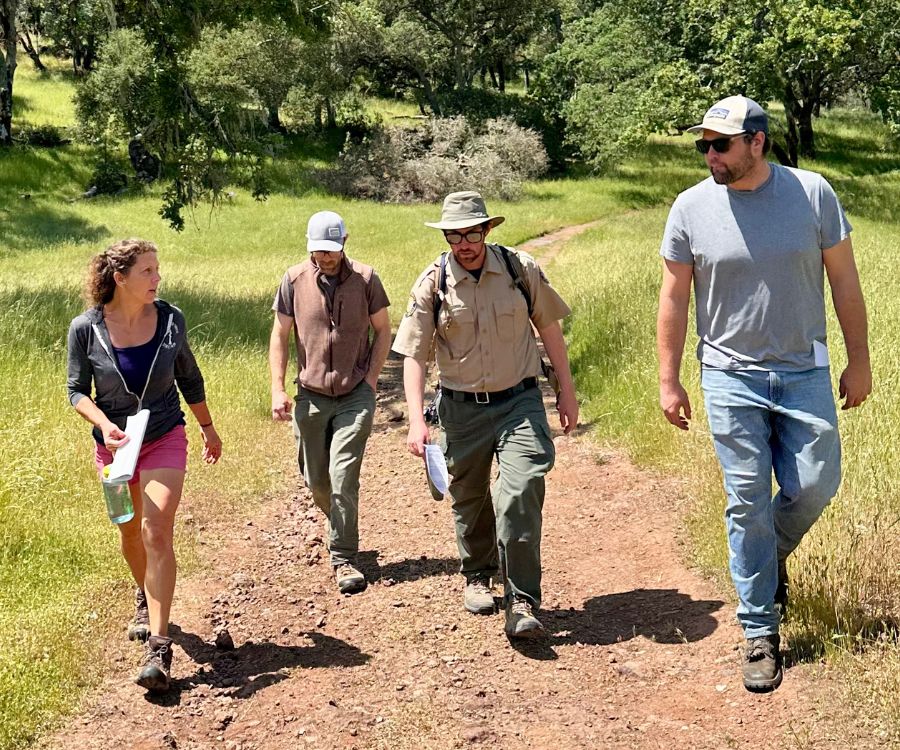
On the right track
“You can see it in the landscape — it’s healthier,” Potts says, considering how the stewardship work supported by Collaborative funding has transformed the forest at Bouverie Preserve. “The Canyon Unit was just a tangle of dead and resprouting vegetation,” she shares. “Now you see an overstory of Douglas fir. You have a middlestory of oaks and taller bays, and an understory of rose, elderberry, and columbine. You can see the diversity in layers.”
Wirka has seen it too, though she no longer works at Bouverie Preserve. She has walked along the Canyon Trail. “It’s nice to see that the ecosystem is responding in the way that it is,” says Wirka. “It’s good to know that we were on the right track.”
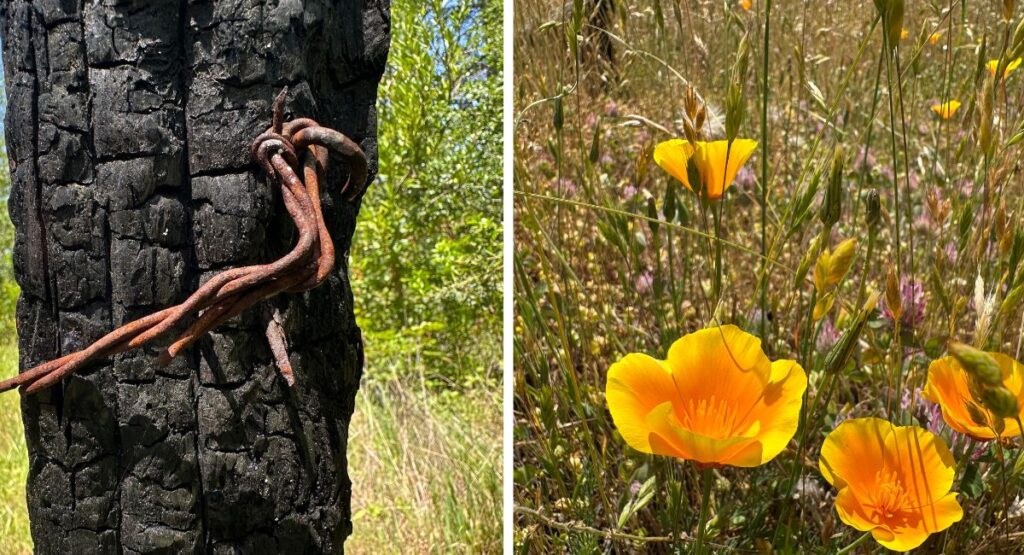
More good things down the road
Eight years since the Nuns Fire, Plaugher considers the future of the Collaborative: “There’s a lot of work to do on larger tracts of land like those in the Sugarloaf / Hood Mountain area,” Plaugher shares. “But also, we’re keeping the lands that have already had prescribed fire in rotation.”
When Potts reflects, she sees the Collaborative’s works as a “beautiful evolution.”
In considering future work, it’s all about resilience: “At Bouverie Preserve, we are creating a mosaic of diverse habitats that support many species and life histories — building resilience for the future. The Collaborative’s support is instrumental for this.”
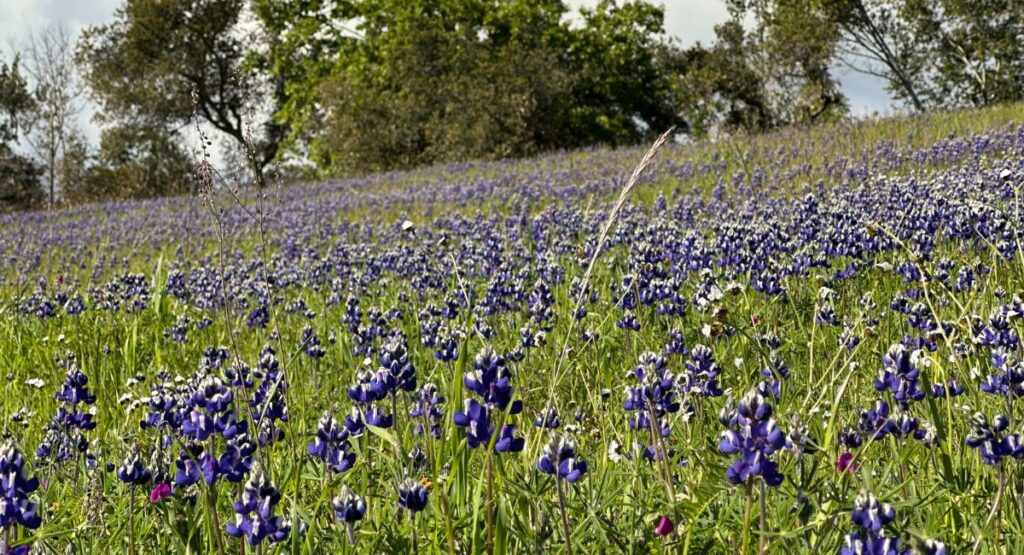
Fall prescribed burn season is here
Stay informed about prescribed burns in Sonoma Valley:
- Monitor smoke alerts on your mobile device with the Watch Duty app.
- Follow us on social media at @fire.forward and @allhandsecology.
- Get personalized notifications for our prescribed burns in your email inbox. Sign up at allhandsecology.org/smoke-alert/
Read more about the Sonoma Valley Wildlands Collaborative.

